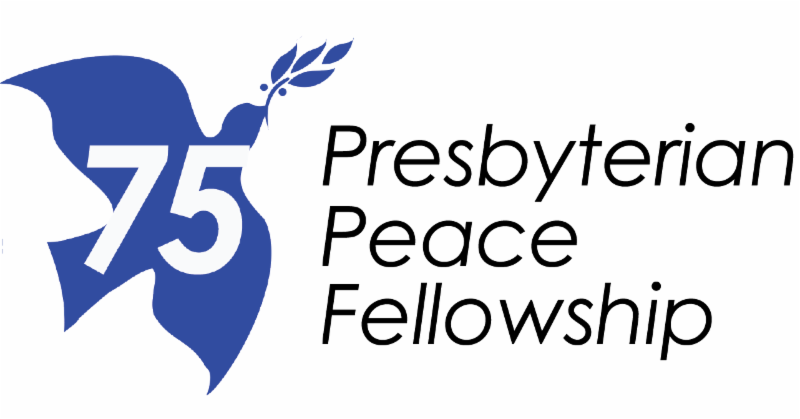As he came near and saw the city, Jesus wept over it, saying, “If you, even you, had only recognized on this day the things that make for peace!” (Luke 19:41-2)
Could it be that Jesus wept over the city because the people of Jerusalem knew what makes for peace and simply did not do it? Certainly. Could it be that the people were malicious? That could also be. Could it be that people who most benefited from the status quo were tired and justice felt too hard or inconvenient to do? Definitely. Jesus weeps whenever people--whenever we--do not do the things that make for peace.
Even at this virtual General Assembly, commissioners intended to make a bold statement about the evils of white supremacy and colonization and yet caused harm by not specifically naming how Black women and girls are particularly affected (misogynoir). PPF supported the diverse group of commissioners who worked on the language that was passed, a replacement motion written to improve on the original overture. The statement that passed is stronger than what was initially brought to the Assembly, and it is still incomplete. As a majority-white organization in a predominantly white denomination, we as PPF acknowledge the ways we contributed to this harm: we moved with urgency instead of consulting the committee directly impacted by this motion. As a Church, we have work to do to truly listen to Black women and girls and act on what they say is needed for their liberation.
Although a few commissioners tried to revisit the statement after it was passed to incorporate language that lifts up Black women and girls as requested by members of the Black Women and Girls Task Force, the Assembly as a whole voted not to reopen the discussion. Jesus wept when the Assembly voted not to include these words written by Rev. Kerri Allen and Rev. Ashley Detar-Birt:
"In this moment, when Black women like Althea Bernstein and Oluwatoyin Salau, and especially Black trans women like Riah Milton, Dominique "Rem'mie" Fells, and Nina Pop are facing brutalization and death because of the intersections of race and gender, it is imperative that we lift up and honor the ways that black women and girls are disproportionately affected by the systems of white supremacy and misogynoir in communities, the church, and society at large. As the 224th General Assembly, we cannot adjourn without making a statement on Black women and girls, we cannot sit by and allow Black women and girls to remain invisible. We must confess that we have participated in structural sin that has exploited, abused, and dehumanized Black women and girls. We affirm the imago dei of Black women and girls as we recognize their cries. We commit to listening and in the work of racial justice, attending to the particularity of the plight of Black women and girls.”
We could have put those words into the PC(USA) official statement - listening to Black women, which is a first step toward peace - but chose not to do the things that make for peace.
The motion that was passed also ultimately creates more work for the Special Committee on Racism, Truth, and Reconciliation, without consulting the committee. The Assembly rushed to vote on the motion before those questions could be asked, even though the concern about additional work was raised by Rev. Denise Anderson, staff person to the committee and a Black woman.
By refusing to recognize the particular realities Black women and girls are forced to face: murder by police, higher maternal mortality rates, oversexualization, and more, this action maintained the invisibilization of Black women and girls. By adding tasks for the Special Committee, this action asks the BIPOC on the committee to do more work that is often uncompensated and always emotionally taxing. These are both manifestations of white supremacy. Putting more work on the Special Committee is a clear example of doing harm while intending to do good.
Even as we failed in some significant and harmful ways, GA also took important steps toward decolonizing through passing two reports related to Native American sovereignty and fundamental human rights. These reports (095 & 096) call for funding for the buildings of Native Presbyterian churches, for the Church at all levels to develop partnerships with indigenous-led communities and groups, for supporting efforts for sovereignty, and for the sales of church properties to return land to indigenous people, among other things. These reports are the only two justice-related items that the Assembly pulled out of the list of business that was deferred to the next GA when this meeting went virtual. That is significant, as is the work ahead of those of us who are settler-colonizers on this land.
As PPF, we recommit ourselves to the work of dismantling white supremacy within ourselves and our Presbyterian communities. We know that being anti-racist means constantly striving, learning from imperfect attempts and trying again.
We invite people--particularly white people--to join our Book Club, consider an Action Circle, and stay connected as we are in the process of forming a new campaign that we hope will invite congregations deeper into the work of “putting some skin in the game” in response to the current Black Lives Matter call to defund the police.
White supremacy is not something we can study or read our way out of, but ongoing learning is a key part of this journey. We learn so we can do better. When we act we learn more, even and especially when we mess up. We keep going, we try to cause less harm and work for more justice.
Again, and with renewed courage and conviction, let us recommit ourselves to these things that make for peace.

No comments:
Post a Comment